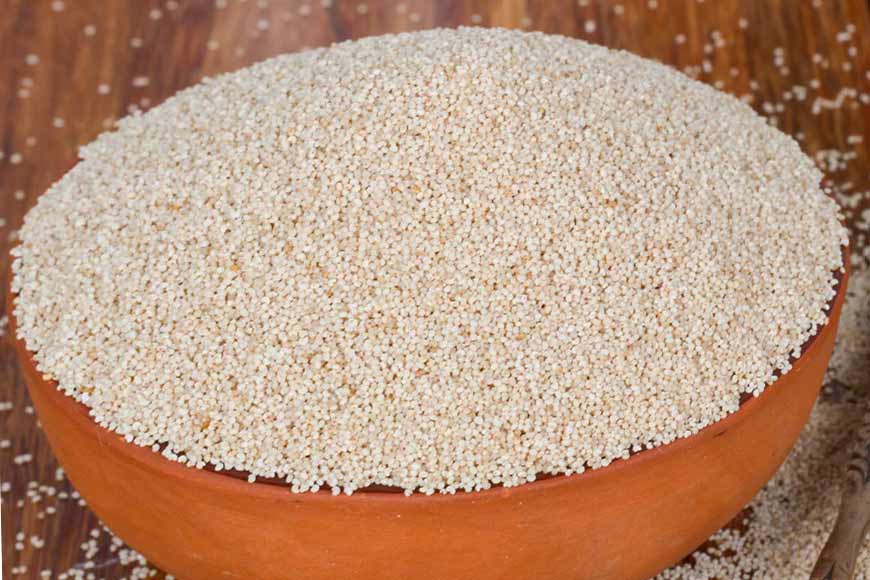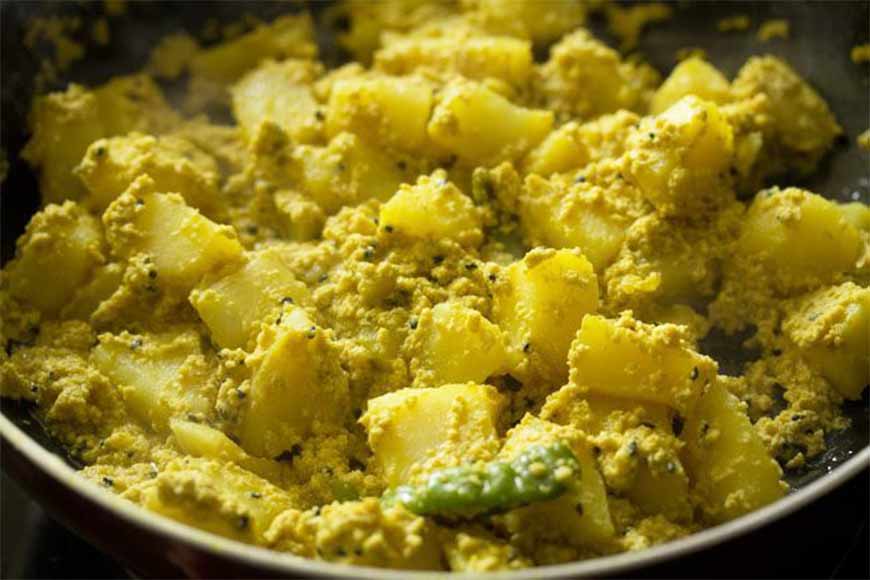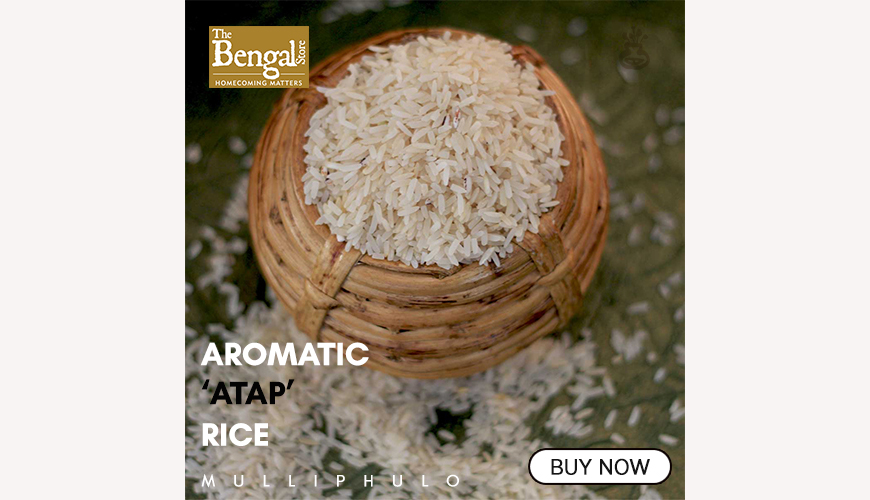How was Bengal’s favourite ‘Posto’ born as ‘left-over’ of British’s opium trade

‘Posto’ (poppy seeds), a Bengali favourite around the world, remains untouched by modern culinary experiments. In Bengal, the white poppy seeds are much loved, and used in plenty of preparations. Synonymous today with a perfect ‘Bengali’ meal, especially when teamed with biuli or urad dal, poppy seeds are consumed in different ways. It is ground and cooked with potatoes and/or ridge gourd as Aloo Posto or Jhinge Posto, or eaten raw as a paste, with chopped onions, chillies and mustard oil. Posto Bora (deep-fried poppy fritters) is yet another delicacy, often flavoured with onion, chillies, salt, and then deep-fried in mustard oil.
Well-known author and historian of Indian cuisine, Chitrita Banerji says: “It’s used in other cuisines but its prolific, enthusiastic, even single-minded utilization is only to be seen in Bengal….”
The opium poppy, from which posto, khus khus or poppy seeds is derived, has a long relationship with India, not as a gourmet ingredient but as a medicinal plant. It slowly took on the form of a recreational drug during the reign of the Mughal emperor Akbar. Its cultivation was stepped up by royal diktat, and the beautiful crimson flower found a special place as well in royal textile motifs. The tiny dried white seeds formed after the drug had been extracted from the latex of the poppy seedpods were non-narcotic and crept into the royal kitchens primarily as a texture enhancer and thickener for gravies. The story may have ended there had not the British discovered the huge market for illegal opium in China soon after. It is interesting to note that this coveted dish has rather unholy yet hugely historic relation with the Battle of Plassey in 1757.
 Aloo Posto
Aloo Posto
In Amitav Ghosh's acclaimed novel, Sea of Poppies, a village woman from an opium-producing region in India has a vivid encounter with a poppy seed. ‘She looked at the seed as if she has never seen one before, and suddenly she knew that it was not the planet above that governed her life; it was this miniscule orb - at once beautiful and all - devouring, merciful and destructive, sustaining and vengeful.’
At the time when the novel is set, poppy was harvested by some 1.3 million peasant households in Northern India. The cash crop occupied between a quarter and half of a peasant’s holding. By the end of the 19th-century poppy farming had an impact on the lives of some 10 million people in what is now the states of Uttar Pradesh and Bihar. A few thousand workers - in two opium factories located on the Ganga River - dried and mixed the milky fluid from the seed, made it into cakes and packed the opium balls in wooden chests.
The trade was run by the East India Company, the powerful multinational corporation established for trading with a royal charter that granted it a monopoly over business with Asia. This state-run trade was achieved largely through two wars, which forced China to open its doors to British Indian opium. Historian William Dalrymple, author of The Anarchy, a new book on the East India Company, says it ‘ferried opium to China, fighting the opium wars in order to seize an offshore base at Hong Kong and safeguard its profitable monopoly in narcotics.’ Some historians have argued that the opium business bolstered India's rural economy and kept the farmers happy.
 Posto Bora
Posto Bora
Huge tracts of agricultural land in the Bengal Presidency were transformed into rolling poppy fields and while the native farmer lamented the death of golden harvests, the British raked in a crimson booty. Robbed of the produce that fed the family — a miserable state compounded by the ‘aphim’-induced stupor of her husband — the farmer’s wife looked for ways to supplement the meagre meals put together by foraging in forests, ponds and groves. The enormous amounts of dried out poppy seed, left as waste by the colonial masters, suddenly took on an important role. She experimented with it and found much to her delight that the seeds when ground to a paste exuded a nutty flavour, blended well with mustard oil and enhanced the frugal meals of panta bhaat (soaked leftover rice), or boiled potatoes. In the intense dry heat of the area, it also cooled the body. Thus, was born the Bengali’s cherished posto. As Banerji observes: ‘An added bonus is its slightly soporific effect, which deepens the post lunch siesta for an ease loving Bengali.’
So next time you are having your favourite aloo-posto, know that what you are eating is part of an entire culinary collection born out of waste.











